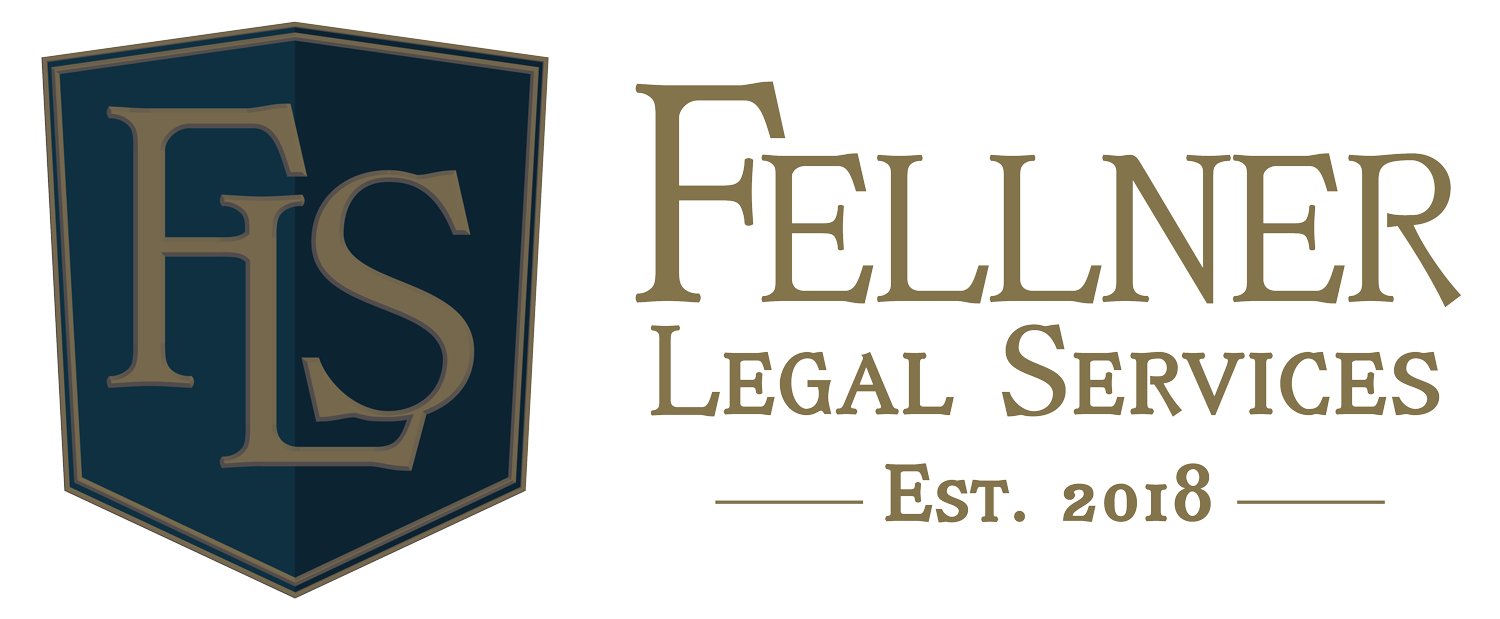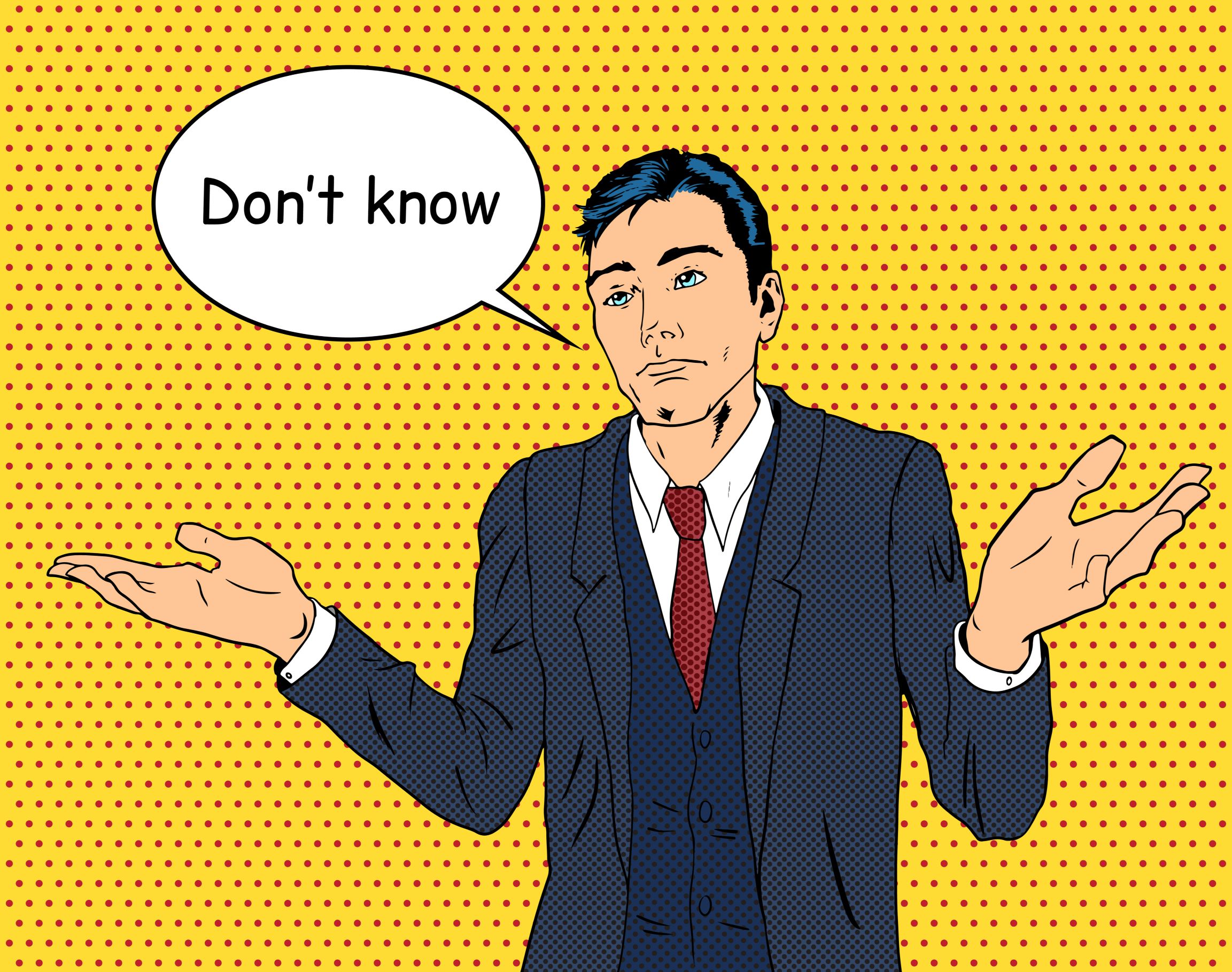Expertise
In our society today, we have a tendency to strive for the status of “expert.” Perhaps driven by combination of a desire to get ahead and a wish to be the person called on to answer questions, we build resumes and credentials that tell others that we know the answer.
People generally also want to answer every question that is asked. This can be motivated by a well-meaning effort to be helpful – who doesn’t want to give some poor lost soul directions back to the interstate? It can also be ego-driven: “I know the answer!” And sometimes it’s just flat out human nature to talk in response to a question, even without any basis for doing so. Don’t believe me? Go ask a question on Facebook or Twitter right now. Seriously, go ahead. I’ll wait. Now check to see the number of people who answered, and then count how many people had any business answering that question whatsoever. “What time does Starbucks open tomorrow?” Responses: “I think 6am.” “Dunkin opens at 5:30.” “I’ve been there at 6:30 before.” “Making your own coffee is way more convenient.” Did any of those people need to answer? No! But did they anyway? Yes! And is anyone better off for it? Of course not!
If you read my stuff, then you are certainly familiar with another good example of this phenomenon – me! My writings are certainly not those of someone who wants you to think he doesn’t have all the answers. I mean, why would you read this only to find out I have no idea what I’m talking about? So yes, I too am out here trying to demonstrate that I know the answer.
This is a pretty widespread condition, and it is pressed into our consciousness from an early age, in many ways. School tests focus on having the right answer. If we answer enough questions correctly, perhaps we can be an “expert,” and looked to for future answers. For entertainment, we even like to watch others and score them on how many right answers (or questions) they can come up with.
One problem. In all this knowing and answering, we often allow ourselves to forget, or ignore, or just flat out refuse to say three little words. (no, not those). The very important three little words we omit are: “I don’t know.”
I suspect that if you are anything like me, you have found yourself in a situation where you did not know the answer to a question being asked, but you didn’t want to admit that. It happens plenty to younger attorneys, who have the training but just haven’t seen the real world execution of the concepts they have learned. It happens often to community association boards, who are presented with a scenario that is well outside the reason they joined the board or any previous experience they have. And it happens regularly to human beings, who are living life. The answer to the question really is: “I don’t know.” But you really don’t want to say that.
So what do we do with these two conflicting concepts? How can I keep people coming back to me while also using those three little words? Here are some concepts to keep in mind.

Reliable Experts are Honest and Trustworthy
If you really want to be relied upon as that go-to guy or girl, then you have to establish not only your knowledge, but your credibility as well. When you avoid admitting that you don’t know, you actually make it worse. First, your question-asker is probably going to figure it out eventually. At that point, you go from the expert to the story-teller. They’re not calling you for your best approximation; they are calling you for the right answer. And if you keep giving them your best approximation, I can guarantee that they are going to start calling someone else.
Second, and perhaps the flip-side of the above, is that saying “I don’t know” is going to make sure that your question-asker can receive your answers with confidence. Because the clear implication is that you will identify anything you don’t know or are not confident about. Everything else you say is a certainty. That is the assumption you want those question-askers to make about you.
Perhaps you are still hung up on that idea of just flat out admitting you don’t know. That’s okay! Here are some ways to use those three little words, while still getting the job done.
I Don’t Know… but I Know How to Find Out
This is basically all of law school. Law students don’t have to memorize statutes or cite cases without looking; those are nothing more than party tricks (I mean, not cool ones or anything). What a lawyer has to do is know where and how to find the answer, and how to synthesize all the information that is freely available to everyone into answering the question presented.
A classic example is the First Amendment. We all know what it says: “Congress shall make no law … abridging the freedom of speech…” But say I am in a meeting with a client and they ask: Can our community association pass a rule allowing the members to fly only the American flag and the Ukraine flag but no other flags?
If I sit right there and say “yes” or “no” on the spot, then frankly, I am doing them a disservice. Because while I know the questions to ask (state action, content-neutral, etc.) and I know where to look for the answers (case law, statutes, flag code), I am not walking around with the answer to that question locked and loaded. And even when I give the answer, it may well be more opinion than certainty. So I tell them I don’t know, but I will find out.
I Don’t Know… but I Know Whom to Ask
This one is a trait of the best community association managers in our industry. The manager wants to be a resource to the Board. She wants the board to come to her first with questions, so that she can guide the process up front and avoid any known obvious pitfalls. She also wants to provide top value and keep costs down; boards love that. So there is a temptation to try to field every question that comes in. After all, how many times has she seen this same situation? She has read the Condo Act and knows as much as any of these high-priced mouthpiece lawyers (yeah it’s okay I know you’re thinking it). Why not just answer the question and bask in the glory of being right?
A whole host of reasons. First, the association has a cadre of professionals, each trained in their own respective field, who prepares for that exact issue. Second, while that manager may feel mostly confident, she may have bit of doubt, or a slightly fuzzy memory.
But beyond the many reasons why, and beyond even this specific example, lies the broader point: if you are not the person to answer the question, but you know who is, then say so. Being a trusted guide to point those travelers in the right direction is every bit as important, and often more memorable, than simply firing off your best guess.
I Don’t Know… but Here are Some Possible Scenarios
Sometimes you are asked a question that basically requires you to become a fortune teller. What will happen if we get involved in litigation? Pass this resolution? Use a certain contractor? Purchase cut-rate insurance? In responding to this question, you may have a reasonable idea. But chances are your speculation on the future is exactly that, and it probably depends on various factors and future events that are simply unpredictable. So if you take a swing at this answer, be absolutely clear that your response is simply a projection, and not a guarantee.
I Don’t Know… but Here is What I Recommend
The hardest question to answer, but one we just can’t resist, is: “What should I do?” Admit it: you love to tell people how they ought to handle a situation. We all do! You read advice columns and then second-guess their responses. You hear a problem and automatically start to solve it for that person. You know best!
But this question is actually extremely dangerous, and nowhere is that more true than in the community association context. A board has a complicated situation where two owners are upset with one another, or an architectural change request is unapproved but installed anyway, or an owner is deceased and the unit has title issues, or two insurance policies conflict over their coverage, or owners disagree about a proposed budget line item. The possibilities are endless, but the question comes in: What do we do about this?
This is very important, so pay attention: There is probably more than one thing you can do here. The old axiom that if you “ask three different lawyers the same question, you’ll get three different answers” is relevant here. (actually I always thought it was an old axiom, but I couldn’t find a citation for it, so perhaps I made it up).
This is relevant for both the asker and the askee. If you ask what to do in a certain situation, and the respondent gives you one specific choice, consider whether or not they have evaluated all the possibilities. Similarly, if you get asked this question, remember that your recommended course of action is probably just your opinion, and not the inevitable.

I Don’t Know… so I should just Remain Silent (said to self quietly)
If someone is asked a question to which you do not know the answer, and it is not directed at you, and you just happen to be standing there, and it’s really not your area of expertise, then I beg you – seriously consider whether or not you need to say anything at all. There are more opinions and comments and talkers than ever out there right now, and fewer and fewer of them actually have anything to say – let alone the right answer! Sometimes the right things to say is absolutely nothing.
So…. What do we Know?
In the end, what we know, is that the most important thing to know is what we don’t know, and if we don’t know, so say we don’t know, because it will demonstrate that we know what we know and we know what you need us to know.
Or…. be willing to say “I don’t know.”


